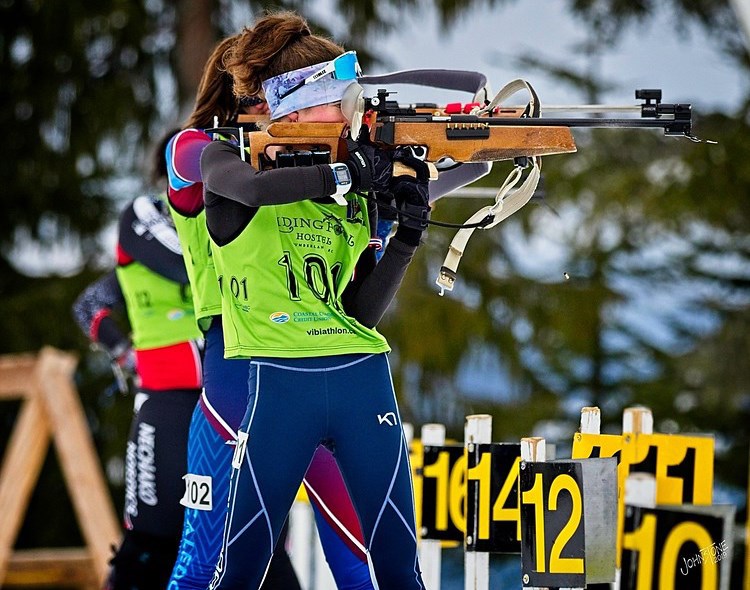麻豆社国产biathletes are among those who've been picked for a program that's intended to bring practitioners of the sport to an elite level.
recently announced , which is going on its sixth year, is welcoming 18 young athletes.
The centre describes itself as one of Canada's most successful development hubs for biathlon.
Its athletes train at Whistler Olympic Park with an expert coaching team, and can both live and work at Whistler's Olympic legacy venues.
Among the athletes training at the centre is Sofie Hill, a 16-year-old local with the who's making the transition to the centre's newly-minted Next Gen Program.
Under this regimen, athletes can train with the centre while still going to school.
"I'm super excited. It's going to be a great opportunity," said Hill. "It's access to more training and support from diff coaches, which is super exciting."
She said this program feels like the next level. Training with the centre, Hill aims to increase her presence on the national level.
At the moment, Hill said training is expected to take place four days a week, including virtual training and roller skiing.
She's anticipating putting in between 10 to 14 hours a week, adding up to about 40 to 60 hours a month.
For Hill, who's been in the Sea to Sky Nordics since she was nine years old, the combined element of shooting and skiing is what draws her to the sport.
"I find it so much more interesting because there's a whole other element aside from just skiing," said Hill.
"Cross country is fun for sure, but it's just: you try as hard as you can, and your race is over. But biathlon it's a whole mental element, and there's a lot more thinking. Shooting is a total mental game."
She said that having a tight-knit team has helped foster her love for competition.
"Competing made all the rest of training all the more worth it," Hill said.
Another 麻豆社国产racer, 18-year-old Trevor Schick is starting his first year with the Whistler Nordic Development Centre.
He'll be living in Whistler for training. He'll be spending much of his time on the hills and on the range.
"It's definitely a big step for me in my life in general and training. Just living on my own for the first time and dealing with all those hurdles," Schick said.
So far, he's two weeks into training, and things are expected to ramp up as the summer approaches.
An average day has him waking up at 7:30 a.m., having breakfast, going for a run or spring skiing.
Following the morning session, there's a recovery break, followed by afternoon training, which could include shooting and other activities.
Schick has been practising the sport for 10 years. Back when they were living in Ontario, his mother saw an ad in the YMCA, and since then he's kept at it.
He said he always had an interest in sports, but the mental game of biathlon pulled him in.
"Switching from the skier to the shooter...not getting frustrated after, like, say you miss a lot of targets on the range, and you get frustrated you can definitely carry that into the ski. So just being able to, every lap, start with a fresh mindset," Schick said.
Coach Etienne Letondeur said that Schick and Hill have a couple of years of hard training ahead of them.
Letondeur said they'll be training all year round with summer activities such as running, biking, shooting, strengthening in the gym and roller skiing.
The program should give athletes an edge, as they will have access to nutritionists, physiotherapists, mental performance coaches, he said. They can be training up to 30 hours a week.
Athletes pay an annual team fee that covers about 40% of the program and the rest is funded by Whistler Sport Legacies, he said.
Athletes apply every year and are chosen based on results the winter year prior to the selections, as well as physical and shooting tests, he said.
The timeline for athletes the age of Hill and Schick may have them trying out for theon the early side, he said.
Biathletes peak between 26 to 32 so the pair still have a fair amount of time to get ready, he said.




